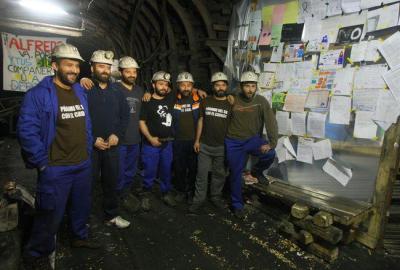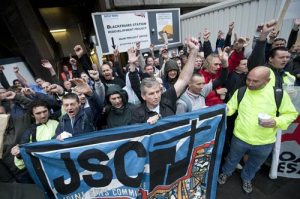Often portrayed as responsible for bringing down a Labour government and ‘letting in’ Thatcher’s Tories, the 1978-79 ‘Winter of Discontent’ remains a high point in the history of the class struggle in Britain.
by Sheila Cohen
The Winter of Discontent (WoD) has not had a good press – either from the right or, less predictably, from the left. The most recent diatribe against this historic wave of struggle comes in a relatively recent publication whose author claims that “The Winter of Discontent marked the democratisation of greed…It was like the spirit of the Blitz in reverse”. A former Labour minister’s comment on the WoD that “it was as though every separate group in the country had no feeling and no sense of community, but was simply out to get for itself what it could” is used to illustrate “the callous spirit which characterise[d] the disputes”.
View original post 2,008 more words












